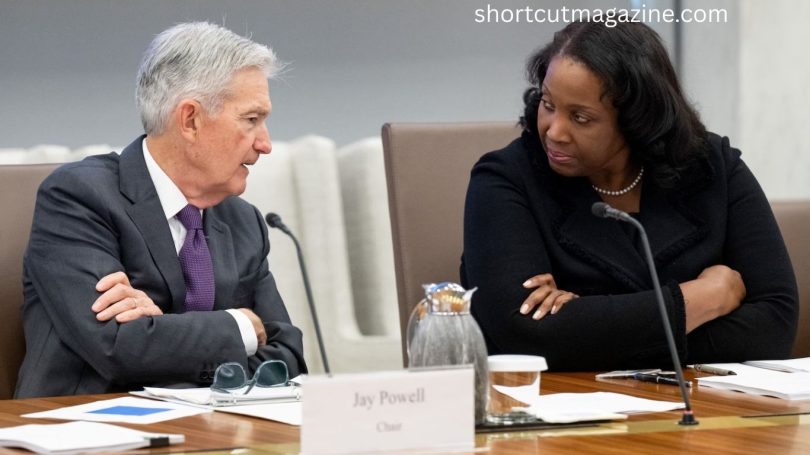Fraud is an ugly word. It sparks outrage, invites punishment, and carries a moral weight few want to excuse. Yet in economic systems, the uncomfortable truth is that the optimal amount of fraud is rarely zero. Eradicating every dishonest act is often more costly than tolerating small breaches. That paradox is once again in the spotlight, as allegations of mortgage fraud swirl around Federal Reserve Governor Lisa Cook.
This controversy raises pressing questions not just about one official’s choices, but about politics, financial integrity, and the independence of the Fed. At its heart lies a dilemma: how much imperfection can a system tolerate before the costs of tolerance outweigh the benefits?
Why Zero Fraud Isn’t Realistic
The idea that some fraud is inevitable may sound shocking, even cynical. But consider daily examples. Employers don’t install cameras to stop every stolen pen or pack of Post-it notes. Retailers, until recently, placed products like razors and detergent on open shelves, accepting that some would be shoplifted. Total prevention simply isn’t worth the expense.
Banks operate under the same principle. A common example is occupancy fraud—when borrowers claim they’ll live in a property to secure lower rates, even though it’s an investment or vacation home. Technically, this is a felony. In practice, however, such cases rarely lead to prosecution because the costs of investigation and enforcement outweigh the benefits. Lenders calculate risk, accept some deception, and move on.
The Allegations Against Lisa Cook
Enter Lisa Cook, a highly respected economist and Federal Reserve Governor. According to reporting by Reuters, Cook obtained two mortgages in June 2021. One was for a property in Washtenaw County, Michigan, where she declared it as her primary residence. Just two weeks later, she secured another mortgage in Atlanta—also marked as a primary residence.
Clearly, no one can live in two places at once. That discrepancy has fueled accusations of occupancy fraud.
Now, life circumstances can change quickly. People buy homes with every intention of moving in, only to face unexpected transfers, job changes, or health issues. If that were the case here, it wouldn’t be fraud—it would be reality. Yet the short time between these transactions makes the explanation harder to accept.
Possible Innocent Explanations
To be fair, there are scenarios where Cook might not be guilty of deliberate misrepresentation. Perhaps both banks were fully aware of her multiple properties and chose to overlook it. Maybe her mortgage broker mistakenly marked the wrong box. Even seasoned professionals can get tangled in paperwork.
But here lies the sticking point: Lisa Cook is not an ordinary borrower. She is a tenured professor of economics and a Federal Reserve Governor. For someone of her stature, even the appearance of impropriety carries weight.
How Serious Is Occupancy Fraud, Really?
Occupancy fraud is surprisingly common, making up 2–3% of loans. Many borrowers fudge details—whether by overstating income, misrepresenting gifts from family, or playing with asset values. For most lenders, this is simply another risk factored into interest rates and underwriting models.
That raises a larger question: how harshly should we judge Cook if she did indeed stretch the truth? On one hand, Fed officials must embody integrity. On the other hand, the financial harm of occupancy fraud is often minimal, making this look more like a technical infraction than a grave crime.
Some argue this entire controversy is less about fraud and more about politics. Former President Trump has repeatedly clashed with the Fed and may see this as a chance to weaken or replace a governor he opposes. If true, the danger to the Fed’s independence far outweighs the significance of one disputed mortgage form.
The Shoplifting Lesson
This situation echoes the retail world’s recent battles with shoplifting. For years, stores adopted a hands-off policy to avoid lawsuits, injuries, and bad press. The strategy worked—until the public realized shoplifting was rarely punished. Videos spread online, theft soared, and stores were forced to clamp down with locked displays and strict security.
The lesson is clear: once people know rules aren’t enforced, violations multiply.
If the public perceives that occupancy fraud is effectively tolerated—even for high-ranking officials—then the practice could expand. Banks might respond with tighter restrictions, making borrowing harder for everyone. Just as retailers had to lock up everyday goods, lenders may adopt intrusive verification measures. The costs would ripple through the entire system.
A Political Power Play?
There’s another layer to this controversy. Reports suggest the Trump administration may be leveraging government agencies, such as the Federal Housing Finance Agency, to pursue Cook. If true, this weaponization of bureaucratic power is far more troubling than a technical mortgage misrepresentation.
The Federal Reserve is designed to operate independently, insulated from partisan pressure. Undermining that independence to settle political scores risks destabilizing the economy. Cook’s case, then, is not just about her choices—it is about whether political leaders can bend financial institutions to their will.
Why Silence Won’t Work
Here’s the dilemma: If Cook stays silent and the issue is brushed aside, it sends a dangerous signal that fraud at the top is tolerable. But if she is punished without a fair hearing, it rewards political manipulation. Both outcomes damage trust—either in the Fed’s credibility or in its independence.
The only solution is transparency. Cook must address the allegations directly, explaining why what looks like occupancy fraud wasn’t. Whether it was a paperwork error, an unusual personal circumstance, or a misunderstood timeline, the public deserves clarity.
Without her voice, narratives will be shaped by critics and political operatives. In today’s climate, silence equals guilt in the court of public opinion.
The Bigger Picture
At its core, this scandal illustrates the tension between human imperfection and systemic integrity. Financial systems can endure a degree of fraud, but not openly acknowledged fraud. Public trust collapses when exceptions appear to benefit the powerful.
For the Fed, trust is everything. Its authority to guide monetary policy, manage inflation, and stabilize markets depends on credibility. If Americans lose faith in its leaders, the institution itself suffers.
That’s why Cook’s case matters beyond the details of two mortgages. It is a test of how we balance accountability with fairness, and how much political influence we allow to shape supposedly neutral institutions.
Frequently Asked Questions:
What is mortgage fraud?
Mortgage fraud occurs when someone intentionally provides false or misleading information during the mortgage application process, such as misstating income, assets, or occupancy status, to secure better loan terms.
What is occupancy fraud in real estate?
Occupancy fraud happens when a borrower claims a property will be their primary residence to qualify for lower interest rates or better terms, even though it will actually be used as a rental, vacation, or investment property.
Why is Lisa Cook accused of mortgage fraud?
Reports suggest Lisa Cook obtained two mortgages in 2021, both listed as “primary residences,” one in Michigan and one in Georgia. Since a borrower cannot live in two homes at once, this discrepancy raised concerns of occupancy fraud.
How common is occupancy fraud?
Industry estimates show that occupancy fraud affects 2–3% of mortgage loans. While technically a federal offense, it is rarely prosecuted against individuals because enforcement costs often outweigh the benefits.
Is mortgage fraud a serious crime?
Yes. Mortgage fraud is considered a felony under U.S. law. However, the severity of punishment often depends on the scale of fraud, intent, and harm caused to lenders or financial institutions.
Could Lisa Cook’s situation be a misunderstanding?
It’s possible. Paperwork errors, sudden relocations, or unexpected life changes sometimes create situations that resemble fraud but are not intentional misrepresentations. Only a full explanation from Cook can clarify this.
Why is this case politically significant?
Lisa Cook serves on the Federal Reserve Board, an institution meant to remain independent from political influence. Critics argue the allegations may be used as a political tool to undermine her position and weaken Fed independence.
Conclusion
Mortgage fraud may seem minor compared to larger financial crimes, but when it involves a Federal Reserve Governor, the stakes rise dramatically. The issue is no longer just about a loan application—it’s about integrity, trust, and the independence of one of the most powerful financial institutions in the world. While small amounts of fraud may exist in any system, the appearance of dishonesty at the top cannot be ignored without damaging public confidence. Lisa Cook now faces a defining moment. By addressing the allegations openly and clearly, she can protect both her reputation and the credibility of the Federal Reserve. Silence, however, risks feeding political agendas and eroding trust in the very institution she represents.



